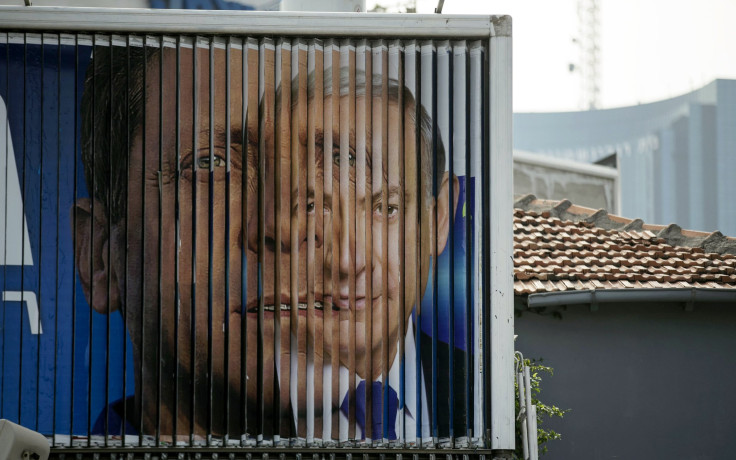Israel Elections: Campaign Videos By Likud, Zionist Union Use Humor In Netanyahu-Focused Political Ads

While Israeli law might forbid televised election campaign advertisements from airing until three weeks before the election, it does not mean that political parties have held back from aggressively driving home their campaign messages in videos ahead of the March 17 vote. Many of the ads that began finally airing on television last week had already been widely viewed online, with many clips employing humor in a transparent attempt to go viral on social media.
Perhaps the most notable example of this strategy is a campaign ad by the Likud party of Prime Minister Benjamin Netanyahu that featured the leader portraying himself in a sitcom-style skit. The ad depicts a couple opening the door for their babysitter, only to find the prime minister, who quips “You got a Bibi-sitter,” in reference to his popular nickname. Through pointed criticisms of his political rivals, particularly opposition Zionist Union leaders such as Isaac Herzog and Tzipi Livni, the ad makes the case that Netanyahu is better qualified to safeguard Israel.
Polls released Wednesday show rising support for Likud’s opponents ahead of the election next week, with the Zionist Union projected to have an advantage of three to four parliamentary seats, something that has triggered panic among the prime minister’s party, reported the Guardian. Herzog, the former Labor party leader who has formed a political alliance with former justice minister Tzipi Livni under the Zionist Union banner, has been running a tight race against Netanyahu, giving his supporters hope that he may be able to unseat the three-term leader.
Herzog and Livni’s Zionist Union has made its own attempts at humor in its ads, including one that poked fun at Netanyahu’s excessive household spending, for which the leader was officially rebuked in a report by a national watchdog last month, Agence France-Presse reported. The allegedly lavish lifestyle of the prime minister and his wife is the focus of the ad, which depicts young Israelis soliciting donations for their household from strangers on the street.
Right-wing Jewish Home leader Naftali Bennett took a more somber approach in his “Treatment for Our Country” ad, which shows a comatose patient in a hospital bed surrounded by medical staff. “We’ve tried everything,” a nurse tells a doctor. “Oslo A, Oslo B, Hebron accords, Wye accords, the disengagement, Annapolis,” in reference to past international agreements meant at reaching a peace deal with Palestinians.
In response, the doctor hands over a prescription reading “Habayit Hayehudi,” in reference to Bennett’s Jewish Home party. The ad ends with the slogan “Stop apologizing. It’s time for Bennett.” The right-wing leader has previously stated his opposition to a two-state solution, arguing that Israel should instead annex much of the West Bank, where Palestinians hope to make a future state.
The ascendant Joint List Party, which represents a historic merger of Israel’s four Arab parties, took a straightforward approach, releasing an ad set to Arabic music with images of Israeli Arabs living and working around the country. “Let’s build a future for a new tomorrow,” the ad urges supporters. The alliance could make an unprecedented Arab showing in the parliamentary elections, with some expecting the Joint List to become the third-largest faction in the Israeli parliament.
© Copyright IBTimes 2025. All rights reserved.






















